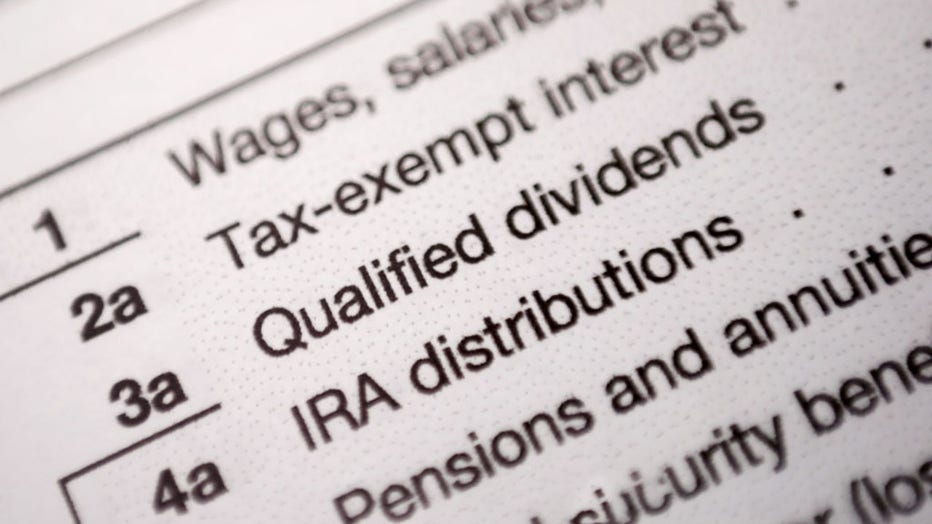If you owe the IRS estimated taxes, Monday is the deadline
WASHINGTON - The IRS is reminding taxpayers whose income is not subject to withholding that an estimated tax payment deadline is fast approaching.
Monday, June 17 is the payment deadline for second quarter estimated taxes.
Here’s what Americans should know in order to avoid potential penalties in April 2025.
Do I need to pay estimated taxes?

FILE - An IRS 1040 Individual income tax form for 2021 arranged in Louisville, Kentucky, on April 12, 2022. Photographer: Luke Sharrett/Bloomberg via Getty Images
Americans must pay taxes as they go throughout the year — either through withholding or making estimated tax payments.
Many people paid by an employer typically have their federal and state taxes withheld directly from their regular paychecks. However, millions of people earn income through freelance work, owning their own business, or are otherwise self-employed, where taxes aren’t withheld.
Generally, the IRS says "sole proprietors, partners and S corporation shareholders must make estimated tax payments if they expect to have a tax liability of $1,000 or more when they file their return."
For those who fall into this group, taxes are paid on a quarterly basis to avoid falling behind and facing possible underpayment penalties, the agency says.
The IRS Interactive Tax Assistant is an online tool that allows taxpayers to see if they are required to make such payments. Americans can also see the worksheet in Form 1040-ES, "Estimated Tax for Individuals," for more information on who is required to pay estimated taxes.
IRS estimated tax payment dates
The second quarter deadline to pay estimated taxes is Monday, followed by the third quarter payments due Sept. 16, 2024.
The final estimated tax payment for tax year 2024 is due on Jan. 15, 2025.
Avoiding IRS underpayment penalty
To avoid an underpayment penalty in April 2025, Americans should pay most of their taxes during the year – owing less than $1,000 when filing their return.
"Generally, for 2024 that means paying at least 90% of the tax owed on their 2024 return, or at a minimum 100% of the tax shown on their year 2023 tax return," the agency stated.
This story was reported from Cincinnati.

